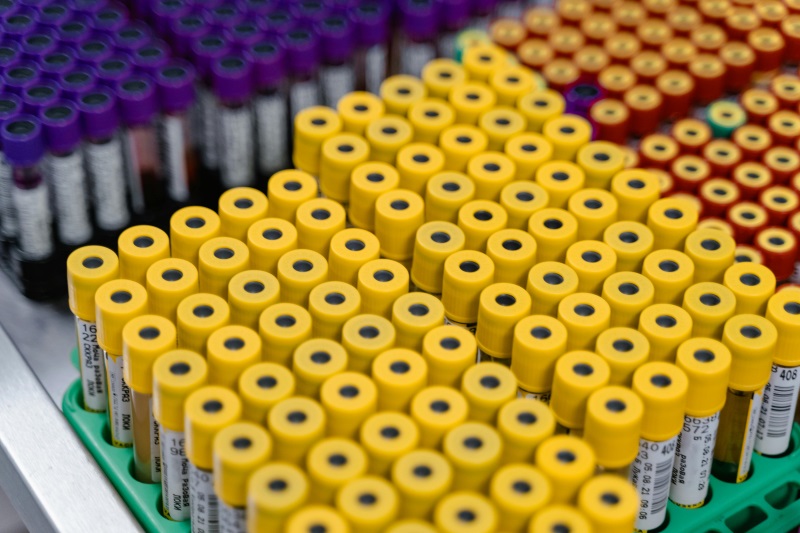IntroductionCauses of Post-Surgery HeadachesTreatment OptionsWhen to Seek HelpConclusionRelated Common Questions
After undergoing surgery for a pituitary tumor, many patients experience persistent headaches. Understanding the reasons behind these headaches is crucial for effective management and recovery. Various factors contribute to post-surgery headaches, including the surgical procedure itself, hormonal imbalances, and individual pain thresholds. In this article, we will explore the causes of these headaches, available treatment options, and when patients should seek further medical attention.

Several factors can contribute to ongoing headaches post-pituitary tumor surgery. Firstly, the surgical site itself may cause persistent discomfort due to tissue manipulation. This physical trauma during the operation can lead to inflammation around the surrounding nerves and brain structures, resulting in pain.
Moreover, hormonal changes are common after pituitary surgery due to the removal of the tumor and potential damage to the pituitary gland. Such hormonal imbalances can trigger headaches, impacting overall health and well-being.
In addition to surgical trauma and hormonal changes, there are other contributors to headaches. Medications prescribed post-surgery may also lead to side effects, including headaches. Patients should discuss any new medications they're taking with their healthcare providers to understand the potential side effects.
Additionally, psychological stress from the surgery and recovery process can manifest physically as headaches. Emotional well-being plays a crucial role in pain perception.
For managing post-operative headaches, doctors often prescribe pain relievers or anti-inflammatory medications. Non-steroidal anti-inflammatory drugs (NSAIDs) are common choices. Patients should follow dosing instructions and discuss long-term use with their healthcare provider to avoid complications.
In some cases, stronger pain medications may be required, especially if headaches persist or worsen. Opioids may be prescribed for severe pain, though these come with their own risks and should be closely monitored by a doctor.
In parallel to medication, non-pharmacological options are valuable for headache management. Techniques such as acupuncture, physical therapy, and relaxation exercises can significantly alleviate symptoms. Behavioral therapies also help in addressing the psychological aspects associated with chronic headaches.
Furthermore, lifestyle changes, including staying hydrated, maintaining a balanced diet, and ensuring adequate sleep, can enhance recovery and reduce headache frequency. Regular exercise might also play a beneficial role in managing pain.
While many headaches after pituitary surgery can be managed at home, it's crucial to recognize when to seek help. If headaches are accompanied by symptoms like vision changes, confusion, or severe nausea, immediate medical attention is necessary. These symptoms may indicate a more serious condition such as infection or increased intracranial pressure.
Additionally, if headaches worsen over time or don’t respond to typical pain management strategies, patients should consult their healthcare provider. Persistent or worsening headaches can signal complications that need further investigation.
In summary, headaches following pituitary tumor surgery are a common occurrence and can stem from various factors, including surgical trauma and hormonal changes. Effective management often requires a combination of pharmacological and non-pharmacological treatments. Being vigilant about one's symptoms and knowing when to seek medical help is essential for ensuring a smooth recovery process.
温馨提示:在术后恢复期间,了解自身的身体变化以及正确对待疼痛,能够帮助您更好地应对随后的治疗与恢复。
Common symptoms following pituitary tumor surgery may include headaches, vision changes, nausea, and fatigue. Patients might also experience hormonal imbalances, leading to additional symptoms, such as mood swings and changes in appetite.
The duration of headaches can vary significantly among patients. Some may experience mild headaches for a few weeks, while others may have persistent headaches that last months. Consulting a healthcare provider for individualized advice is crucial.
If headache medication is not effective, patients should contact their healthcare provider for a reassessment. Doctors may recommend alternative medications or additional therapies to address the issue more effectively.
Yes, maintaining hydration and consuming a balanced diet are essential. Foods rich in magnesium, such as leafy greens and nuts, may help relieve headaches. Consulting with a nutritionist for tailored dietary advice can be beneficial.
Absolutely, stress can play a significant role in exacerbating headache symptoms. Engaging in relaxation techniques like meditation, yoga, or deep breathing exercises can help manage stress and reduce headache frequency.
Yes, fluctuating headaches can be normal following surgery. Headaches may vary in intensity and frequency due to a variety of factors, including hormonal changes, stress, and overall recovery progress. Consultation with a healthcare provider is recommended if fluctuations are substantial.
Returning to normal activities depends on individual recovery. Generally, light activities can be resumed within a few weeks post-surgery; however, more strenuous activities may require clearance from a healthcare provider. Always follow your doctor's recommendations for the best recovery experience.